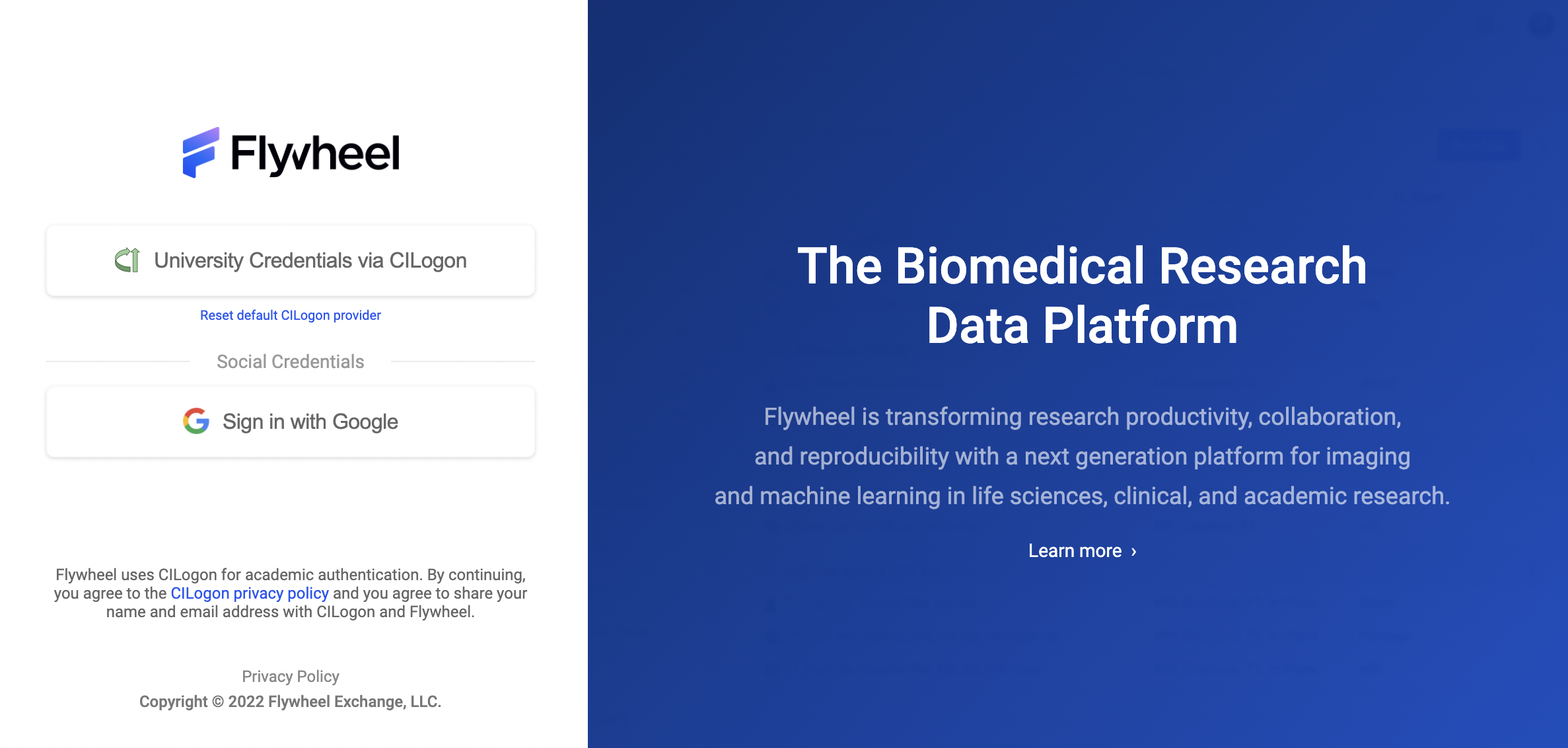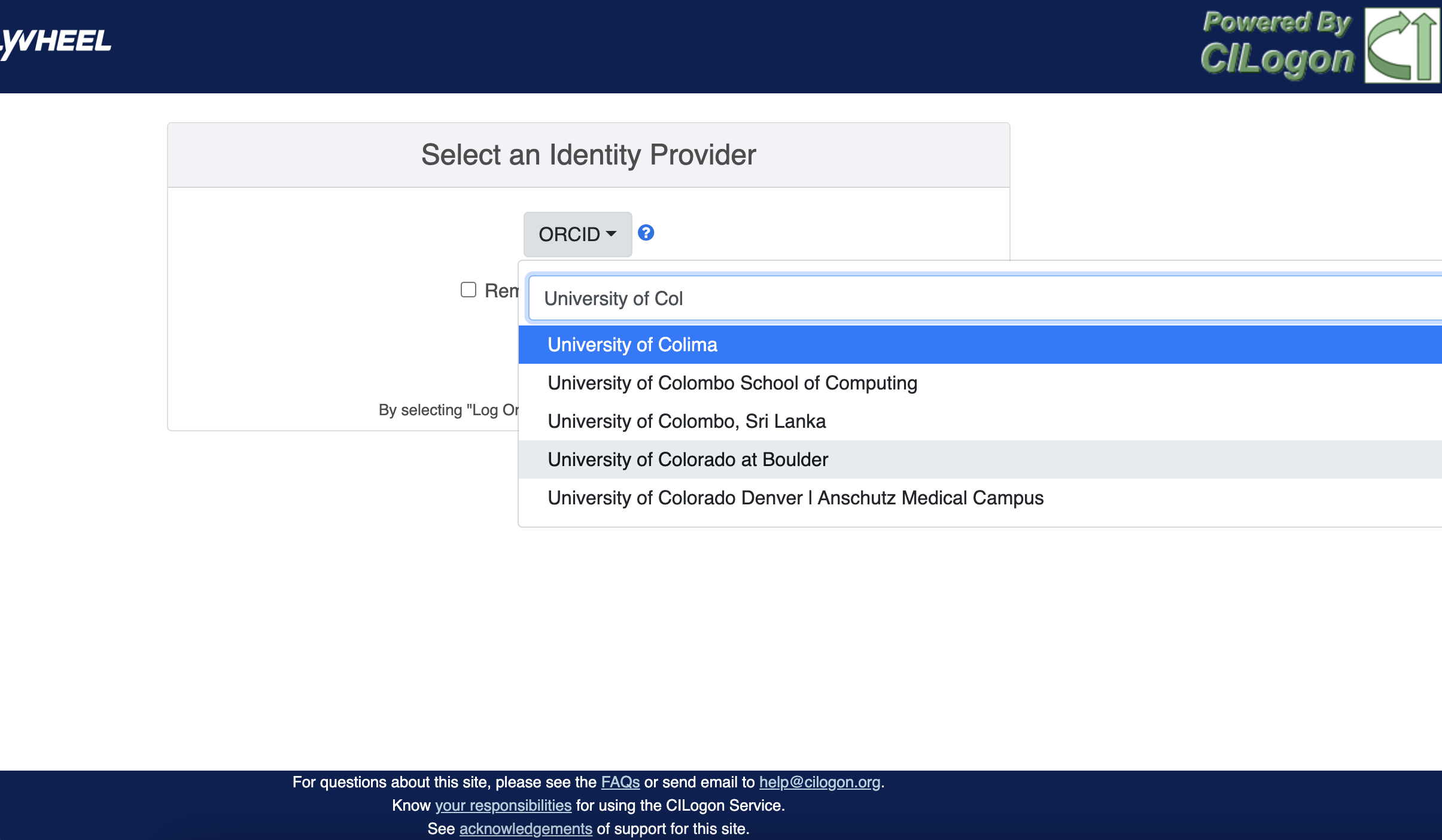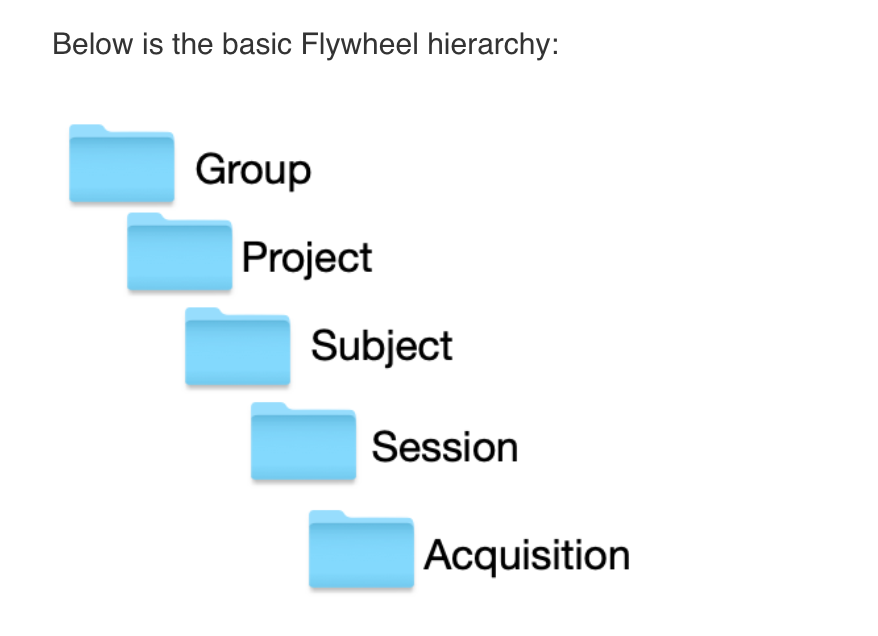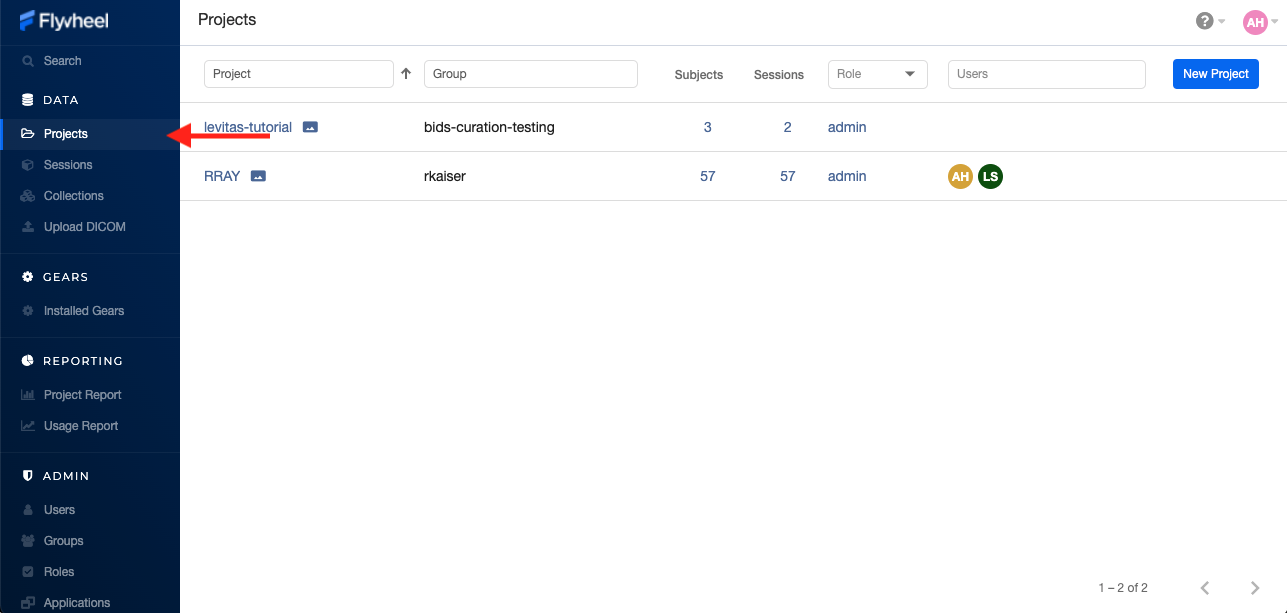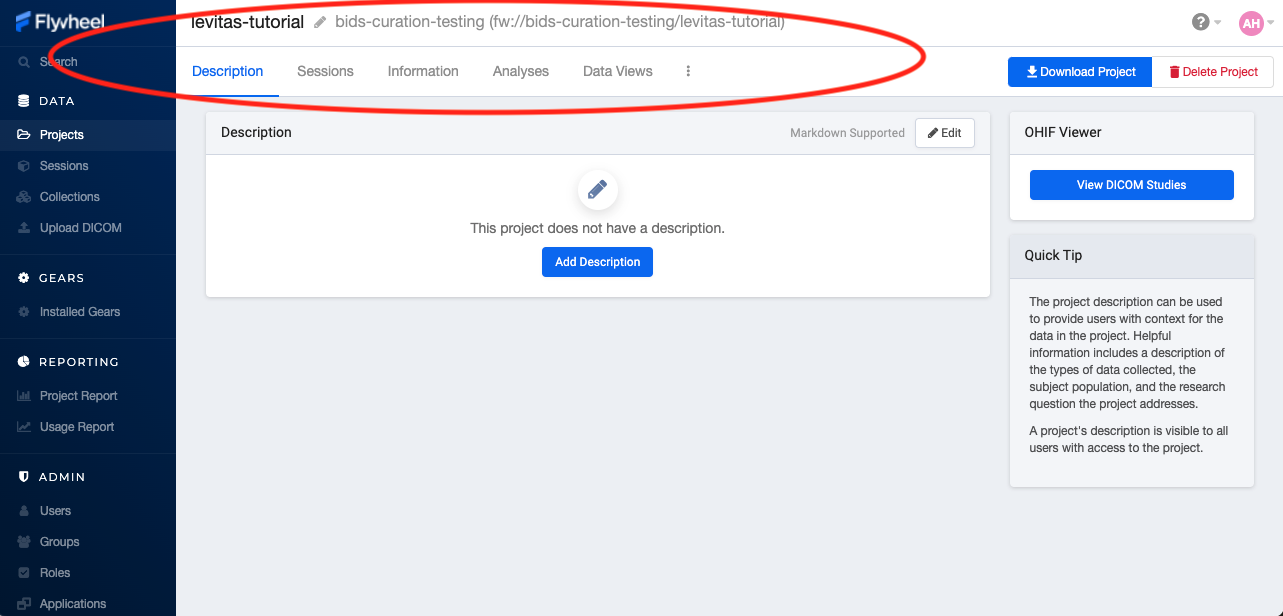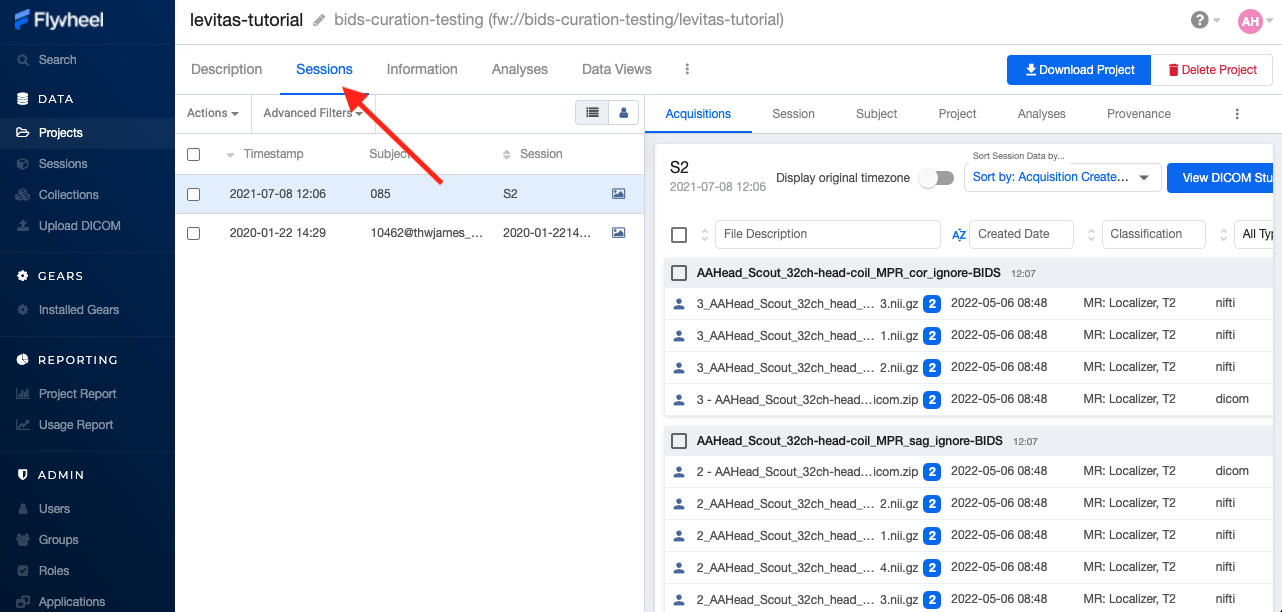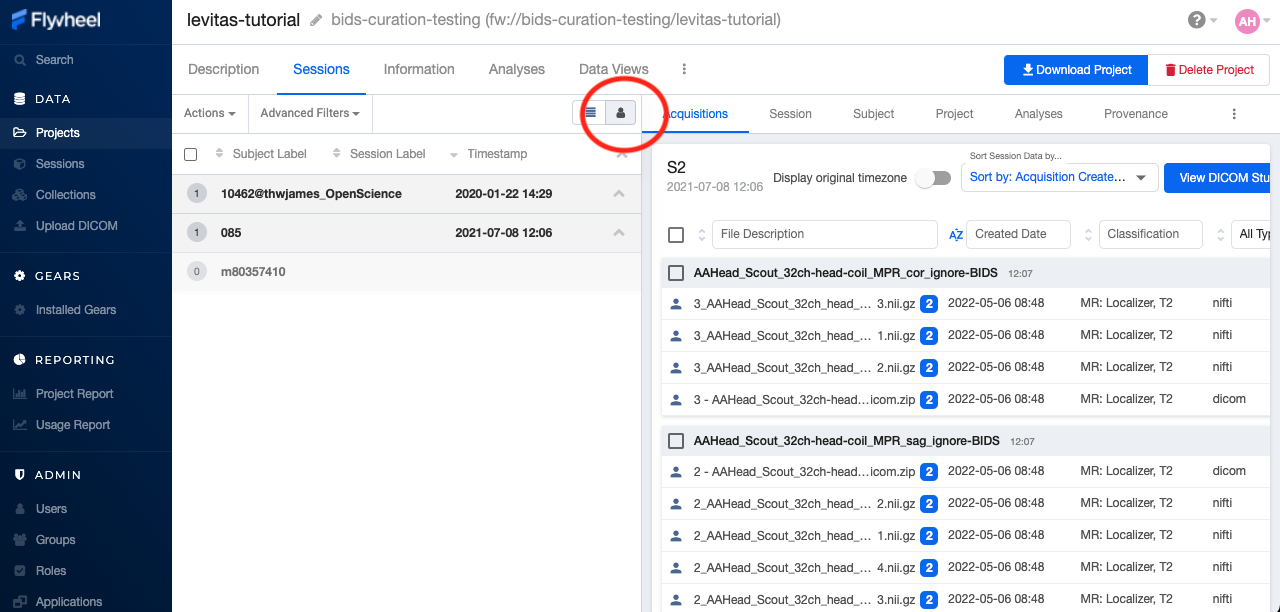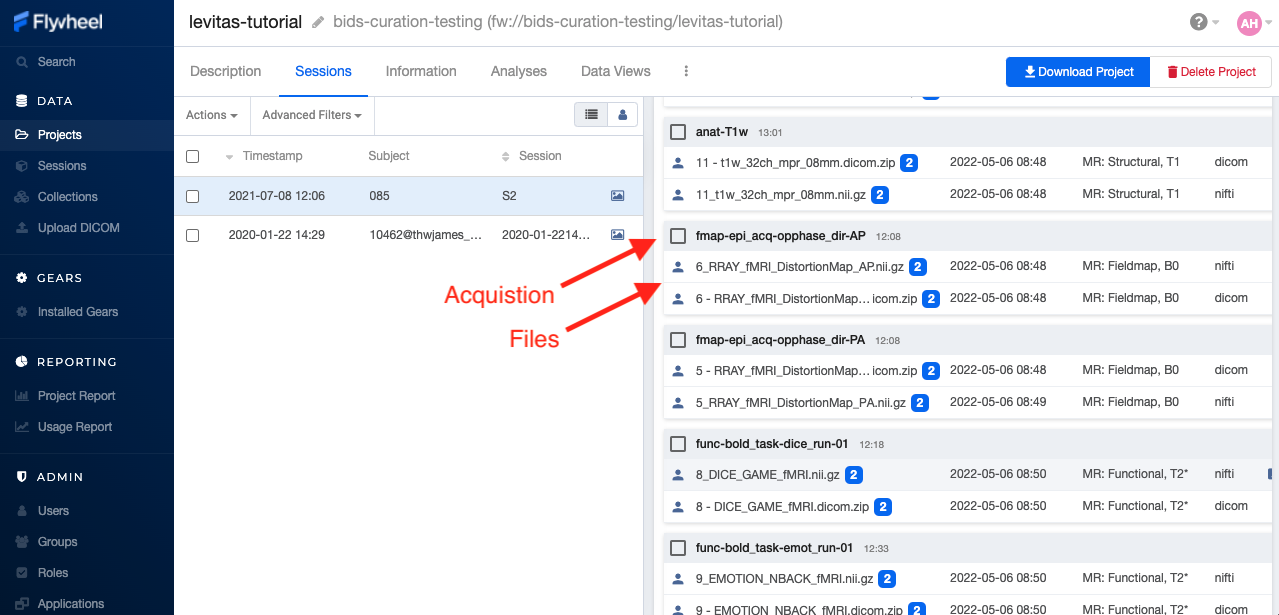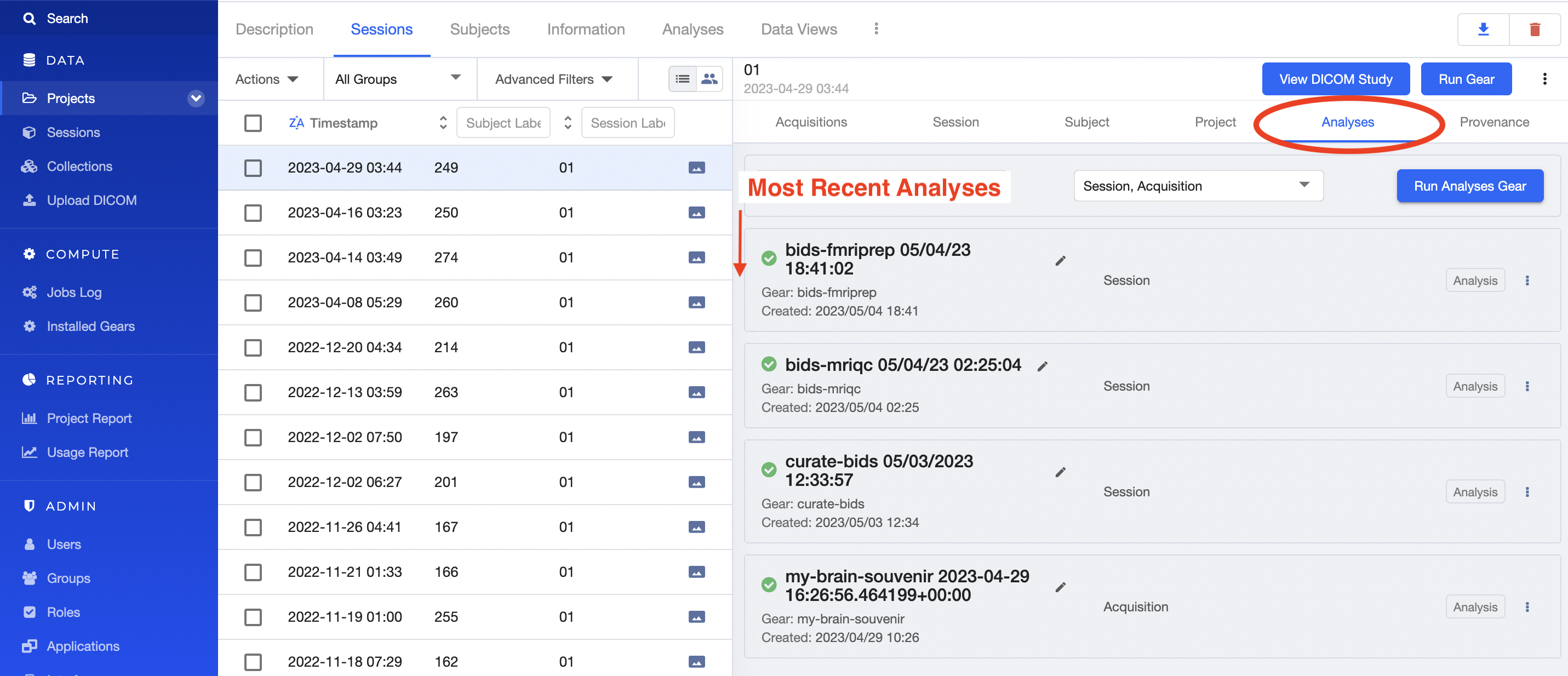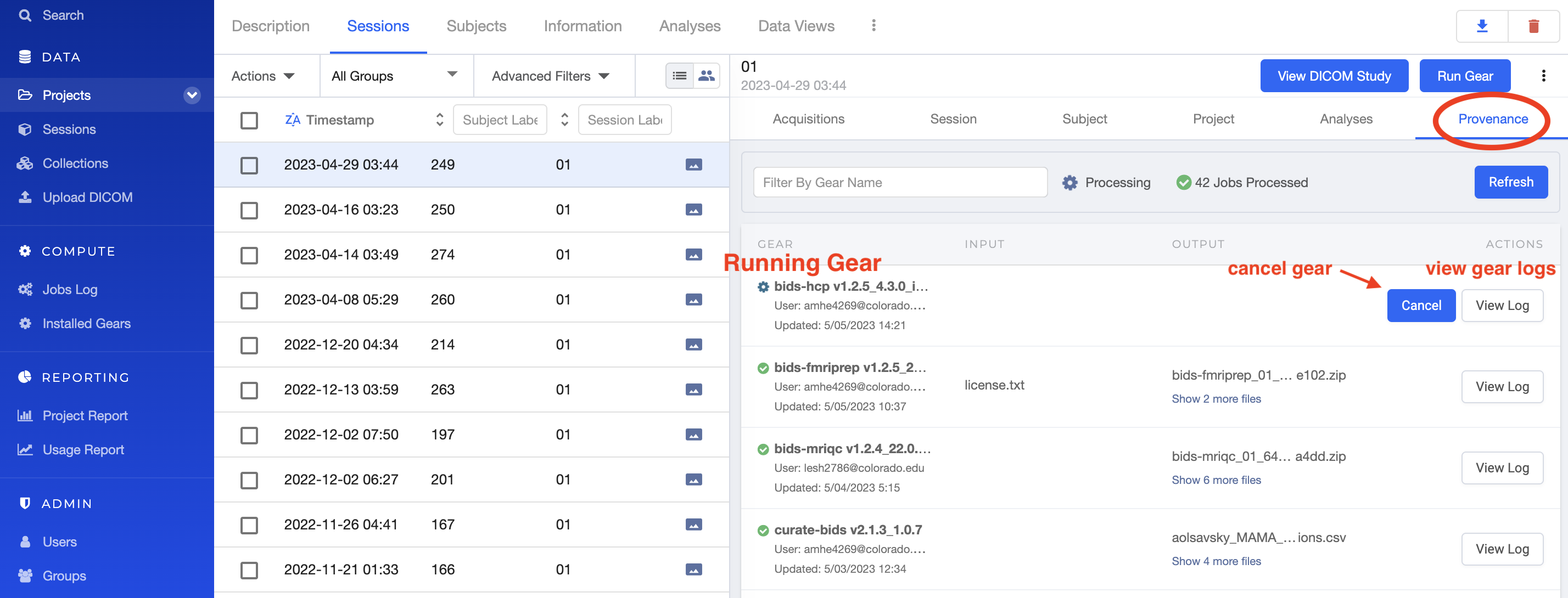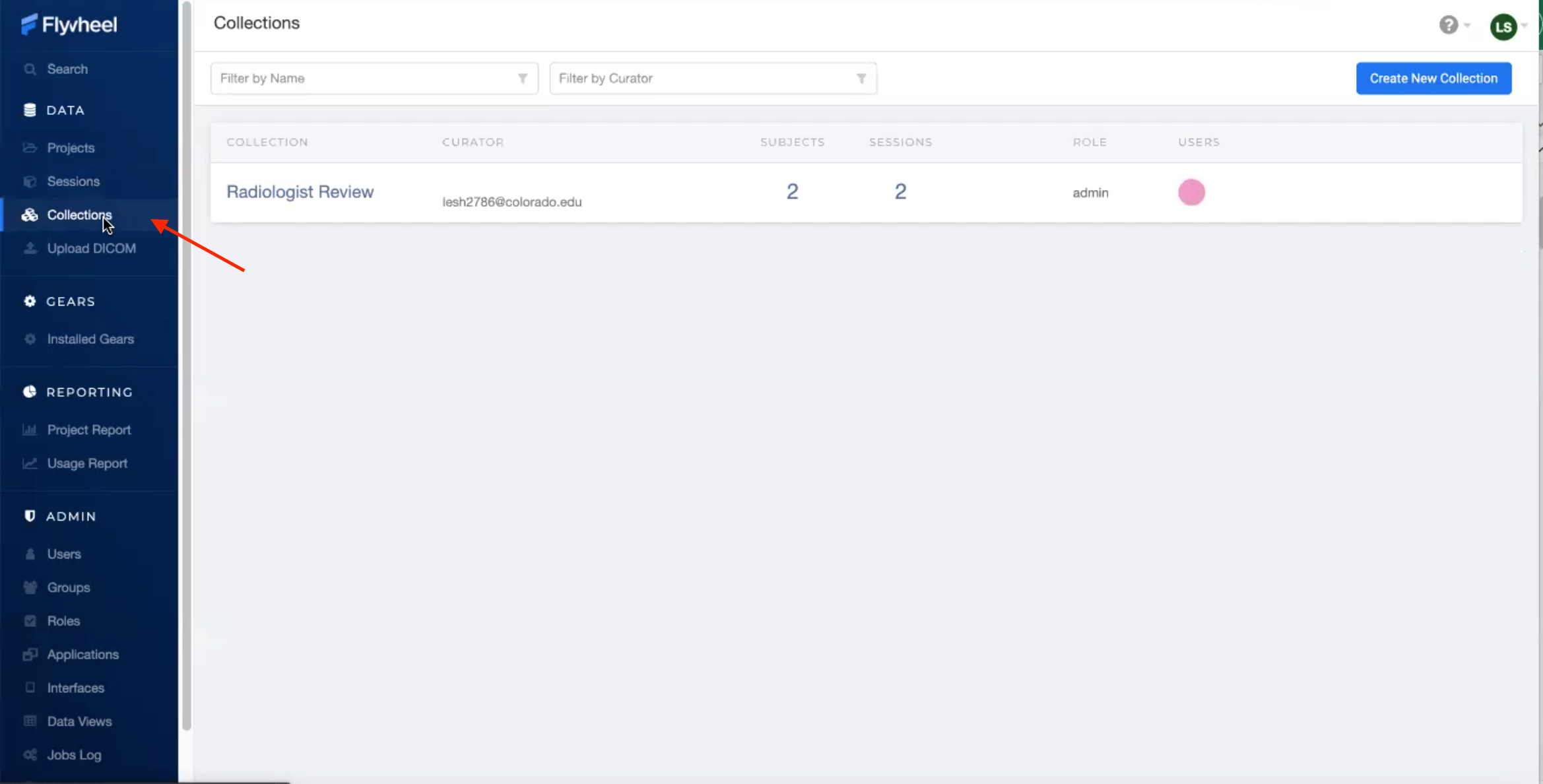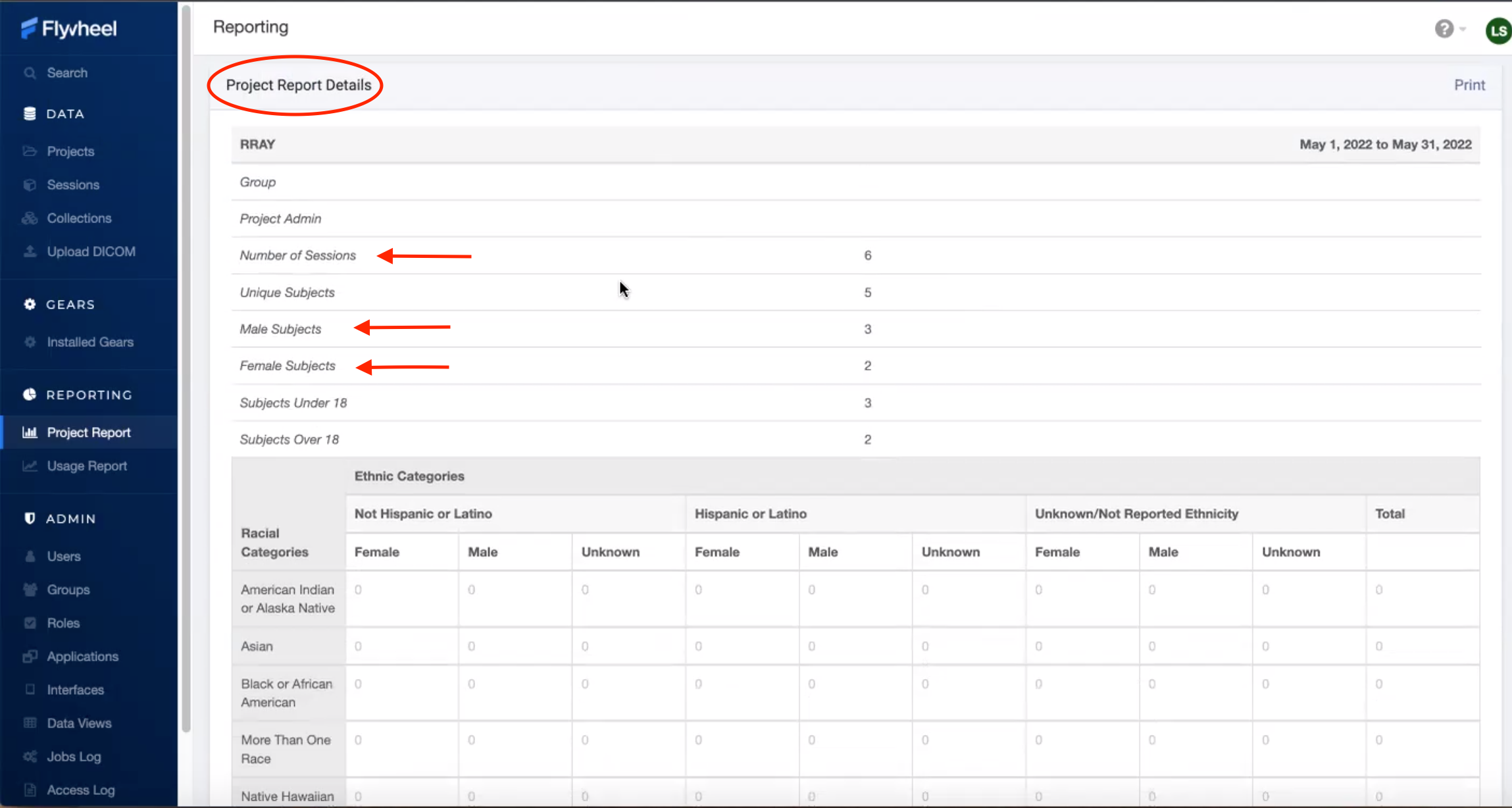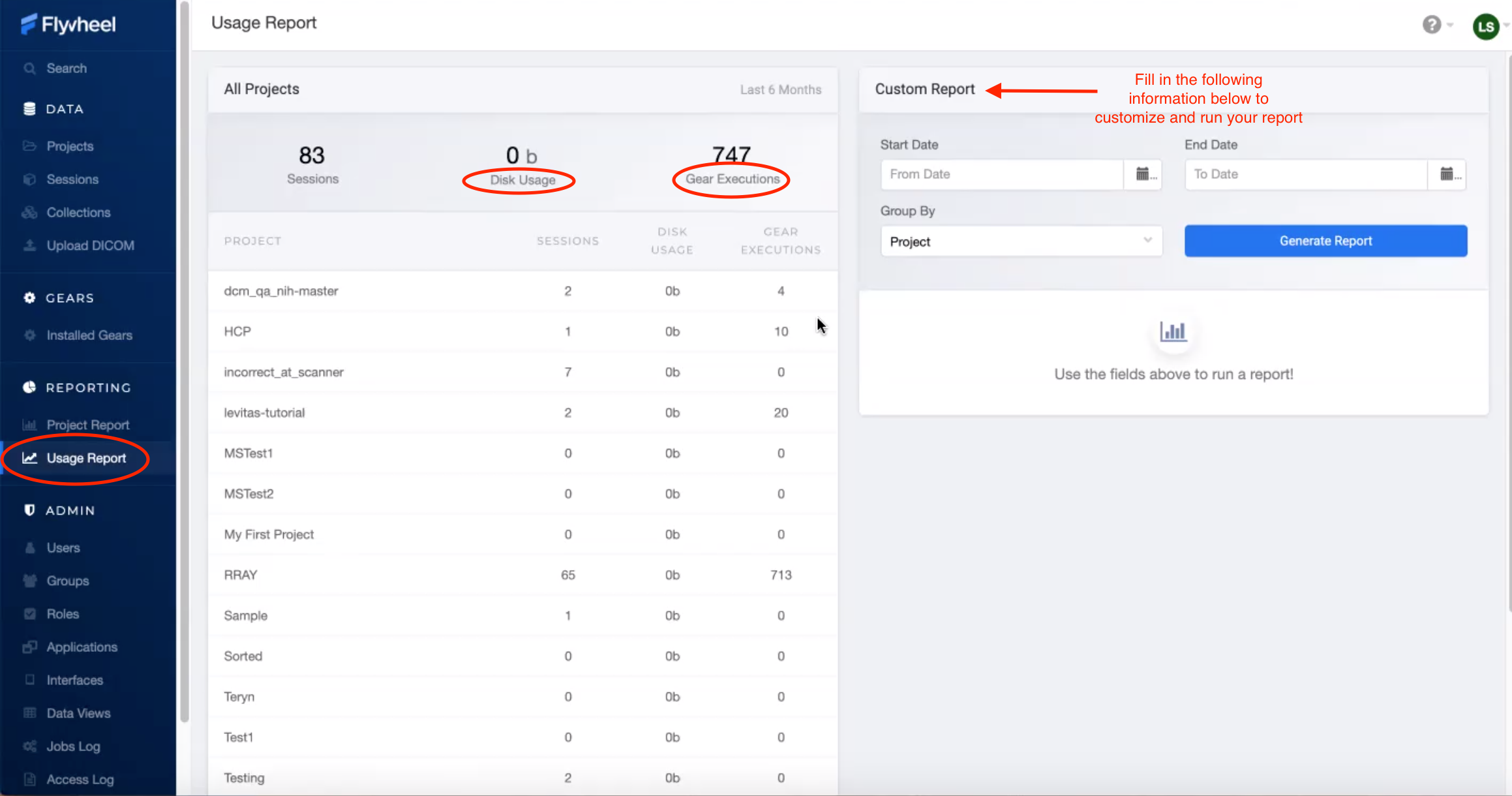Overview
Flywheel.io is an imaging platform used to receive, curate, manage, and analyze data from scientific facilities. Intermountain Neuroimaging Consortium (INC) is excited to host an “on premise” deployment of Flywheel.io for clinical, industry, and academic researchers within the region. The “on premise” instance means all data storage as well as computation is completed using University of Colorado services. INC at CU Boulder has leveraged the power of Flywheel.io and the considerable resources available through University of Colorado Research Computing to provide a seamless experience for all researchers from data collection at our MRI facilities to data analysis, visualization, and publication.
For those familiar with other “PACS” systems, Flywheel also provides a service to receive and view data directly from the Intermountain Neuroimaging Consortium’s 3T Prisma Fit MR scanner.
Most importantly, Flywheel is a FAIR compliant platform. F-A-I-R are a set of data principles adopted by both the National Science Foundation (NSF) and National Institute of Health (NIH, beginning 2023) to prompt transparency and reproducibility. Findability, Accessibility, Interoperability, and Reuse cornerstone these principles. Flywheel supports the FAIR data practice mission by ensuring rich metadata for all data stored within the platform. Flywheel also enforces the use of provenance, meaning the storage of information about “who, what, when, how” in data creation and management. By conforming to these best data practices, INC hopes to elevate the importance of transparent and reproducible research in the neuroimaging community.
Interested in learning more? Check out our introductory video here.
Also, check out Introduction to Flywheel Webinar here.
At the Scanner
Before starting a new or existing study in Flywheel, please set up a meeting with the Intermountain Neuroimaging Consortium Staff (website) who can help discuss your specific needs. While Flywheel.io provides almost endless flexibility in implementation of the platform, there are a few critical actions that must take place to ensure every image collected at INC lands in Flywheel in the right place.
Naming your Flywheel Session
In order to ensure acquisitions are assigned to the correct Project, Subject, and Session this information MUST be entered at the scanner console correctly (in the field labelled Accession Number), using the following convention:
Flywheel Accession Number Naming Convention:
<project-label> / <subject-label> / <session-label>
While no constraints are placed on the format within each label, we highly recommend using BIDS compliant naming schemes for subject and session labels.
A minimal amount of additional information may be entered at the scanner for any study participant or scan session. This information includes:
Scanner Field |
Usage |
Notes |
|---|---|---|
Referring Physician |
Principal Investigator |
(Required) |
Accession Number |
Flywheel Naming Convention |
(Required) |
Patient ID/Name |
URSI Identifier |
(Co-Enrollment in COINS Only) |
Age |
Age |
(Co-Enrollment in COINS Only) |
Gender |
Gender |
(Co-Enrollment in COINS Only) |
INC currently records this information using the Scanner Requisition Form which should be submitted before each scan session. Still have questions? Check out our FAQs page.
Note
The naming convention outlined above is specific only to the INC instance of Flywheel. Other neuroimaging centers have individual conventions for tracking project, subject, and session IDs from during image acquisition.
Examples of Accession Numbers
Study A has enrolled John Snow into their study, this is a longitudinal study, where the participant will return for 3 separate neuroimaging sessions. Below is an example of what is entered for the Accession Number field on the scanner console.
- StudyA/101/S01
The participant is assigned a subject-id of 101 and session-id of S01.
Importantly, Flywheel is different from COINS in that you do not need to pre-register your participants with his/her ID apriori (before the scan). In fact, INC recommends that the participants are not pre-registered in Flywheel, but rather that the studies check Flywheel after the scan completes to make sure there was no typo at the scanner. No personally identifiable information can exist on the Flywheel platform (see MOU). In short, this means study teams must retain the key to their Coded data in a secure location outside Flywheel such as REDCap or on paper. Please consult the University of Colorado Institutional Review Board (IRB) regarding appropriate steps that must be taken to secure Coded and Personally Identifiable Information for human subject research.
Study B has enrolled Snow White into their study. This participant has already participated in another study conducted in the same laboratory. This study is cross-sectional with a single cohort, and therefore the study does not want to include a session flag.
- Incorrect
StudyB/102/ or StudyB/102
We have arbitrarily assigned the participant a subject-id 102, no link is required to the prior study BUT we are missing a required session label!
Flywheel naming convention is rigid and requires Project, Subject, and Session label to ingest and route the data to the correct location.
- Correct
StudyB/102/S1
While this example study has only one session, we must enter all three labels: project, subject, and session every time!
Note
What happens if this naming goes wrong? If a flywheel session was incorrectly named, all acquisitions associated with that session will be stored in an “Unsorted” project. This project is unique to each Principal Investigator (Flywheel “Group”). Study teams should take great care to ensure any missing or incorrectly named scans are caught quickly! Once a study has identified an incorrectly labelled scan, they should contact INC personnel immediately who will correct the error.
What is Pre-Registration? and Why it Matters?
For current INC users, you are likely accustom to storing participant information and subject-ids in COINS. COINS uses pre-registration to check that images generated on the scanner “match” coded information already entered into the COINS database. With this protocol, INC staff could immediately identify and flag scanning sessions with incorrectly entered participant codes. Flywheel provides a more streamlined approach that does not necessitate pre-registration. The bottom line here: in Flywheel, INC staff can no longer play any role in the confirmation that participant information was entered correctly at the scanner.
Warning
Users should check all scans entering Flywheel immediately after the scan session is complete. Closely inspect that all participant information is correct and matches the information stored in your participant key outside Flywheel!
I Started my Study in COINS, What Happens Now?
All studies who wish to continue pre-registering and importing your data into COINS have the option to do so. All studies opting to continue using COINS will also have all new acquisitions stored in Flywheel. All scanner fields necessary for COINS convention are compatible with Flywheel convention. The one notable exception: while COINS has no restrictions on the value entered into “Accession Number”, this field MUST conform to the Flywheel naming convention to comply with both COINS and Flywheel requirements.
What Information Can I Include in Flywheel?
INC at University of Colorado supports an “on premise” deployment of Flywheel.io. As all data and compute is conducted within UCB systems, we must conform to all data and privacy polices set forth by University of Colorado Research Computing (CURC) and Flywheel.io. As such, data must be de-identified before entering Flywheel. NO protected health information (PHI) and NO personally identifiable information (PII) may be stored in Flywheel. Examples of protected information includes:
first or last name
email address
phone number
mailing address
study enrollment or collection date (when paired with other identifying information)
detailed health history
Not sure if your data is correctly de-identified? Please contact your IRB representative before placing any data in Flywheel!
How To Cite Us
This on-premise Flywheel platform is made possible by the hard work of many groups. Please cite us (Intermountain Neuroimaging Consortium) and the following collaborators if this platform has helped you produce your publication. Collaborators:
CU Boulder Research Computing (on top of who’s platform we have deployed Flywheel)
Flywheel.io (without whose continued support, this would not be possible)
Contact Us
Interesting in getting started? Contact us here to request a copy of INC’s Memorandum of Use and to set up a one on one consultation.
That’s it folks! Tune in for more information and tutorial regarding Flywheel at UCB!
